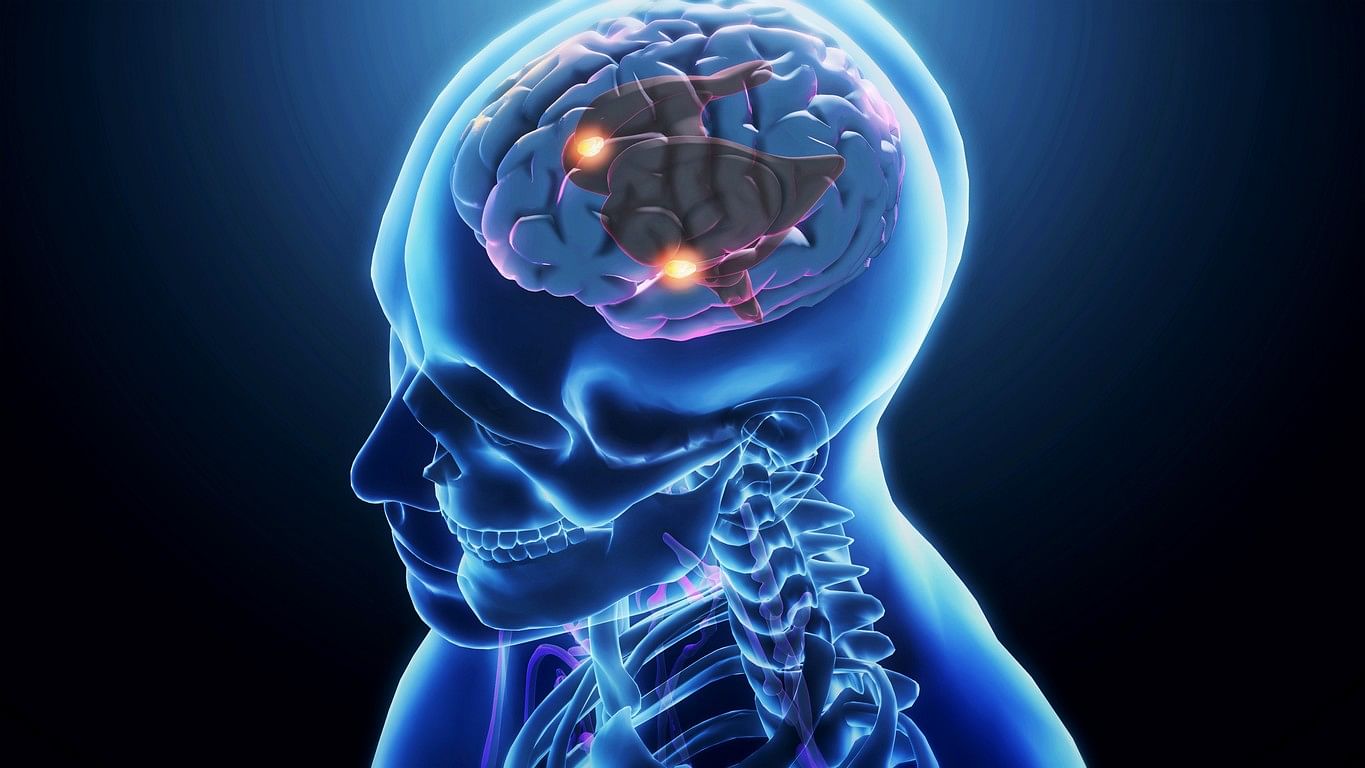
Representative illustration showing a brain scan.
Credit: iStock Photo
New Delhi: The brain's hypothalamus could be critical for helping one switch between behaviours to survive -- such as hunting for prey and escaping a predator, a new study has found.
The hypothalamus, almond-sized and located deep within the human brain, is known to be important for survival. It is sometimes referred to as the body's 'thermostat' for its role in maintaining temperature, along with regulating hunger, thirst, fatigue and sleep.
However, researchers from California Institute of Technology, US, have found that the hypothalamus also helps an individual switch between seemingly opposite behaviours, such as hunting prey and escaping predators, even as previous studies have suggested the brain region to be critical for shifting behaviours in animals.
The finding extends our understanding of the role of hypothalamus in ensuring one's survival, according to the authors.
The results also suggest that evolving a "specialised" brain process that helps switch between survival states, such as hunting vs escaping, would be "highly advantageous", the authors said in the study published in the journal PLoS Biology.
The team of researchers scanned the brains of 21 people playing a virtual survival game, in which the participants controlled an avatar on a computer monitor, making it switch between two modes of behaviour to survive -- one, where the avatar had to hunt for a virtual prey and two, where it had to escape a virtual predator.
Whilst the participants engaged in the game, their brains were scanned using functional magnetic resonance imaging (fMRI) technique over four-hour periods.
For analysing these brain scans, the researchers developed an artificial intelligence-based model that could differentiate between the movements displayed by the avatar while hunting and those while escaping. The team then linked these movements with changes in hypothalamus activity, seen in fMRI scans.
The authors, thus, found patterns in activity in the hypothalamus, along with that in the nearby brain regions, related to switching between the two modes of behaviour to survive.
Further, they also found that the strength of hypothalamus activity could help them predict how well the participant would perform in their next survival task.
"These findings extend our understanding of the human hypothalamus from a region that regulates our internal bodily states to a region that switches survival behaviours and coordinates strategic survival behaviours," the authors wrote.